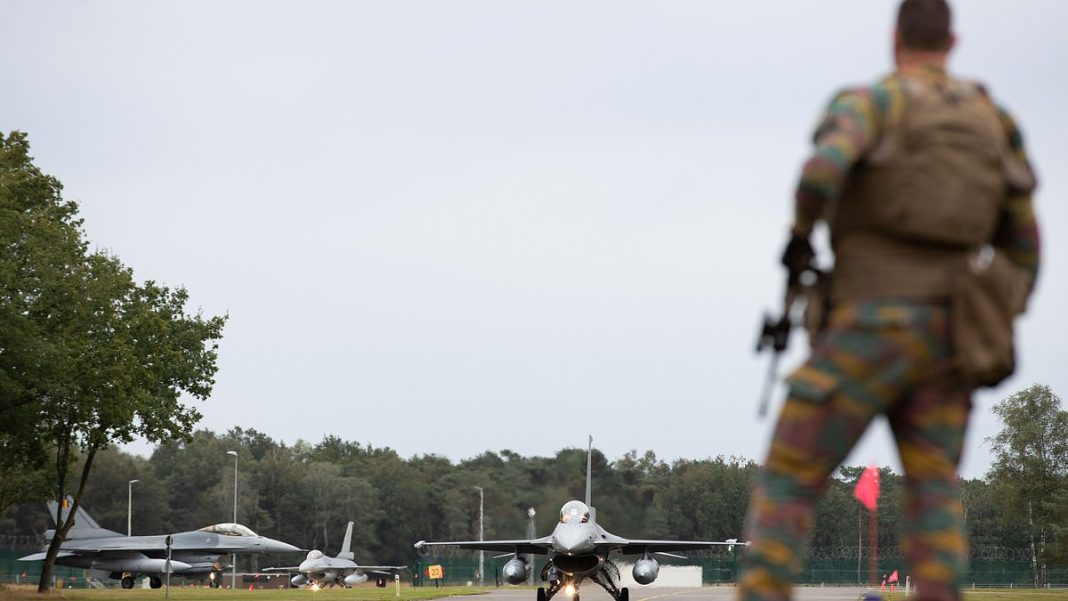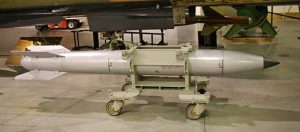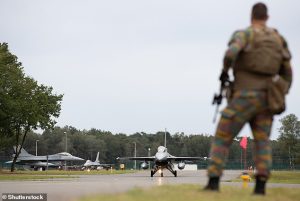Key Takeaways
- Mysterious drones conducted coordinated flights over Belgium’s Kleine Brogel air base, where US nuclear weapons are stored
- Belgium’s defense minister described the incidents as a “spy operation” targeting sensitive military assets
- The events are part of a broader pattern of drone incursions across European military sites and airports
Belgium is investigating suspicious drone activity over a military base storing American nuclear weapons, with officials calling it a potential espionage operation. Defense Minister Theo Francken confirmed drones entered Kleine Brogel air base’s airspace in two waves over the weekend, targeting sensitive locations including F-16 fighter jets and munitions.
Coordinated Drone Incursion
The first wave involved smaller drones that reportedly tested the base’s radio frequencies, followed by larger drones intended “to destabilize the area and people,” according to Francken. “It resembles a spy operation. By whom, I don’t know,” he told public broadcaster RTBF.
Francken emphasized this was not accidental: “It’s not a drone that just happened to cross the military base. It was there for a long time, so it was definitely for spying.” He described the incident as “a clear attack targeting Kleine Brogel” rather than a simple flyover.
Nuclear Weapons at Stake
The US stores an estimated 10 to 20 B61 nuclear bombs at the Belgian base, which plays a key role in strategy in Europe. The facility hosts F-16 fighter jets scheduled for replacement with F-35A aircraft in coming years.
Globally, the US maintains approximately 200 tactical nuclear weapons, with about half positioned in Europe. Around 100 are deployed across five NATO countries including Belgium, Germany, and Turkey. Unlike strategic nuclear arms, tactical weapons are designed for battlefield use in limited geographic regions.
European Security Concerns
The drone sightings occur amid growing airspace security concerns across Europe. Recent months have seen unexplained drone appearances over military installations in Denmark, flight disruptions at Spain’s Gran Canaria airport, and incidents in Germany that prompted Chancellor Friedrich Merz to accuse Russia of waging a “hybrid war.”
Merz blamed President Vladimir Putin for reconnaissance drones that disrupted Munich Airport, stranding over 10,000 passengers during German Unity Day and Oktoberfest preparations. “He is waging an information war against us. He is waging a military war against Ukraine, and this war is directed against all of us,” Merz stated.
NATO Response in Estonia
In a related incident, NATO forces shot down a mystery drone near a base housing US troops in Estonia, less than 30 miles from the Russian border. Two drones were spotted near Camp Reedo on October 17, with one destroyed using an anti-drone rifle while the other escaped.
Estonian Foreign Minister Margus Tsahkna emphasized NATO’s readiness to intercept violating aircraft: “The message must be unequivocal – future violations will meet a response, including, if necessary, the interception and downing of intruding aircraft. This is not only about defending Estonia’s borders – it’s about defending NATO’s borders.”








